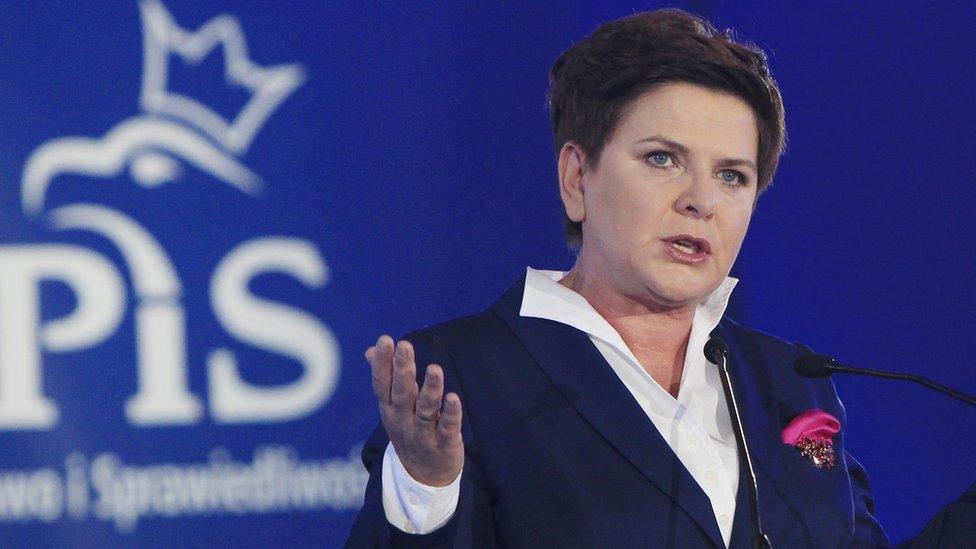Poland's ruling conservatives clash with EU over media control
- Published
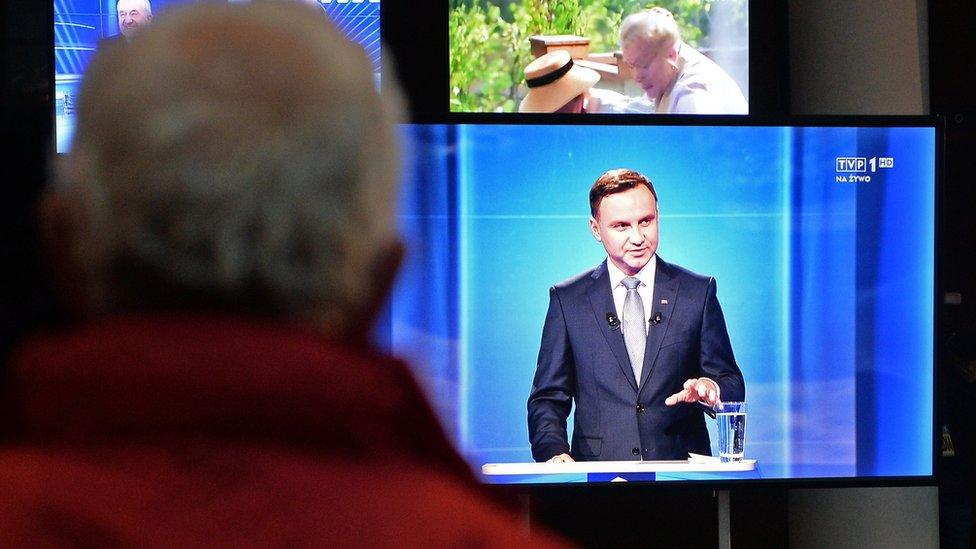
President Andrzej Duda may soon sign the controversial law giving the government power over public TV
For the first time since the fall of communism in 1989 the government in Poland could soon have almost complete control over the public media.
That is a result of amendments to the country's media law that were rushed through parliament in two days by the governing conservative Law and Justice (PiS) party and may soon be signed into law by President Andrzej Duda.
The new rules give the treasury minister the power to dismiss and appoint the management of the country's public TV, radio and press agency.
The law faced opposition both at home and abroad with the European Broadcasting Union (EBU), an alliance of public service broadcasters, writing to President Duda asking him not to sign the bill.
"The haste with which this new law has been rushed through parliament strikes a discordant note about Poland and its respect for the rule of law and the democratic process," EBU Director General Ingrid Deltenre wrote, external.
The deputy head of the European Commission, Frans Timmermans, wrote to Poland's foreign and justice ministers expressing his concern for media freedom in Poland.
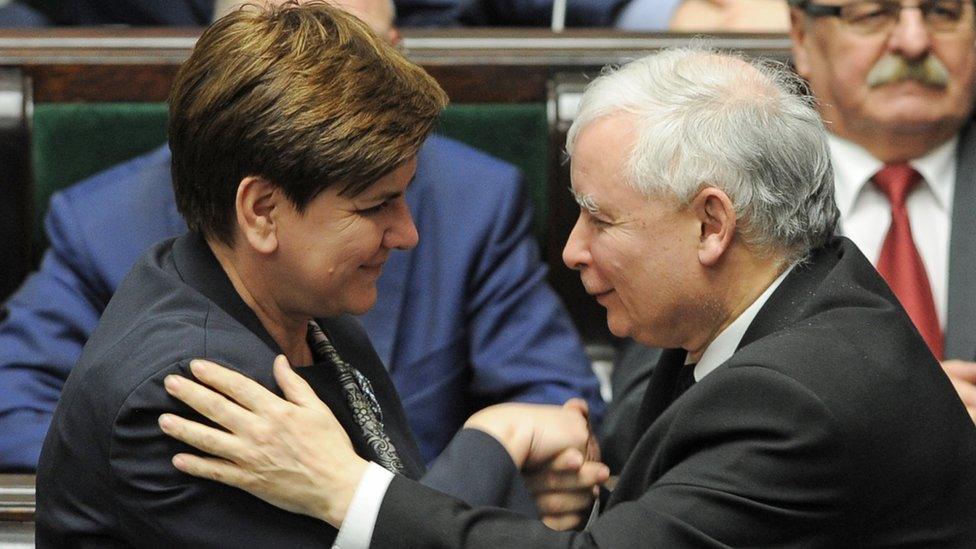
Prime Minister Beata Szydlo leads a party still dominated by its chairman Jaroslaw Kaczynski
At home, the heads of Poland's public TV channels resigned in protest on 31 December.
In a symbolic gesture, Polish Radio's First channel has alternately broadcast the national anthem and the EU anthem, Beethoven's Ode to Joy, at the top of each hour, a reference to Law and Justice's nationalistic and Eurosceptic stance. The national anthem is normally played only at midnight.
'Propaganda'
New governments in Poland tend to put their own people in to head state institutions, companies, and the public media.
The previous government, led by the centre-right Civic Platform party, did this during its eight years in power. So did the Law and Justice-led government before it. As a result, public TV and radio tended to be partial in its coverage towards the party in office.
In November, culture minister and deputy Prime Minister Piotr Glinski appeared on public TV station TVP Info and, irked at the line of questioning, accused it of broadcasting "propaganda" for several years.
The difference now is that the new Law and Justice government, which took office in November, is going faster and further in its attempt to gain control of state institutions.
Management of the country's largest state-controlled companies has been changed
A new law governing the Constitutional Court has been passed aimed at increasing the governing party's influence over the tribunal
Another new law allows Law and Justice to take control of the civil service
More than 1,600 civil service directors, who are apolitical, can be sacked and replaced without the need for a competitive board.
The changes to public media and the Constitutional Court have concerned some in Brussels, leading the European Commission to call a political debate on the rule of law at its meeting on 13 January.
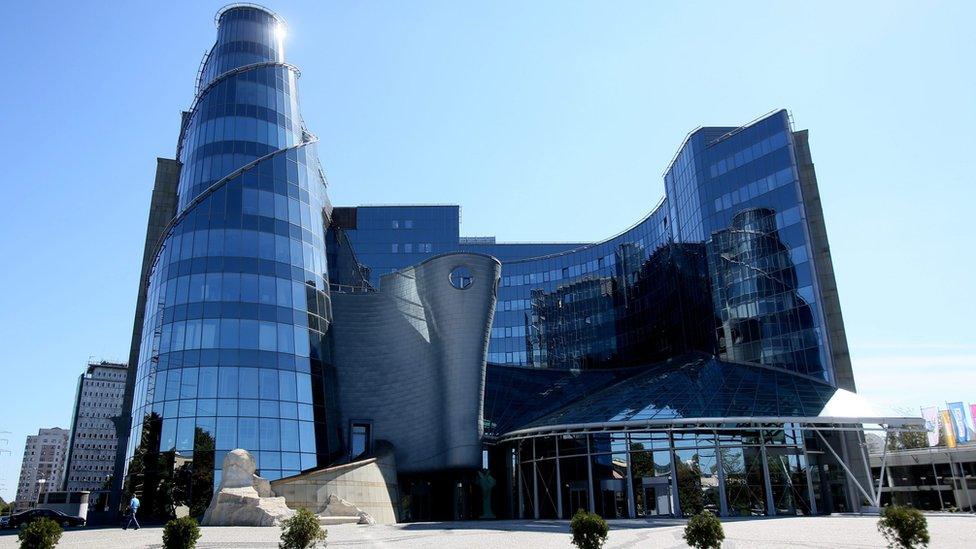
TVP headquarters: Most Poles watch the broadcaster's output
Law and Justice says its decisive election win in October, when it became the first party in Poland since 1989 to secure enough votes to govern alone, has given it a strong mandate for these reforms.
'Cyclists and vegetarians'
The governing party plans to go further with its media reform to transform public TV and radio into "national institutions of culture".
It argues that would act as a counterbalance for some privately owned media, including broadcaster TVN and Gazeta Wyborcza newspaper, which it says promote liberal values and are biased against the government.
"The previous government carried out a leftist programme there (in the public media). It was as if the world was according to a Marxist model which has to automatically develop in one direction only - a new mixture of cultures and races, a world made up of cyclists and vegetarians who only use renewable energy and fight all forms of religion," Polish Foreign Minister Witold Waszczykowski told German newspaper Bild on Sunday, external.
The previous government was certainly more socially liberal than Law and Justice but, compared with Western European societies, it was relatively conservative on many issues including same-sex partnerships or abortion.
And while the use of wind energy increased dramatically during the last eight years, the Civic Platform government continued to champion the burning of coal, which still produces 85% of the country's electricity.
The government's reforms are increasing the polarisation of society, with tens of thousands of people taking to the streets both in support and opposition to the government.
Increasing politicisation of Poland's public radio and TV is likely to entrench media into two camps, those supporting the government and those against it, leaving less room for more nuanced viewpoints.
- Published3 January 2016
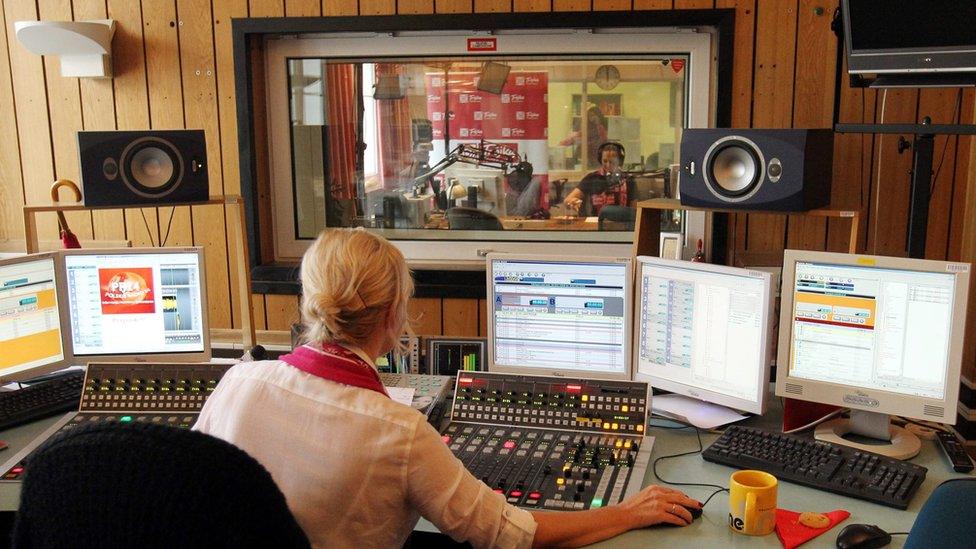
- Published26 October 2015
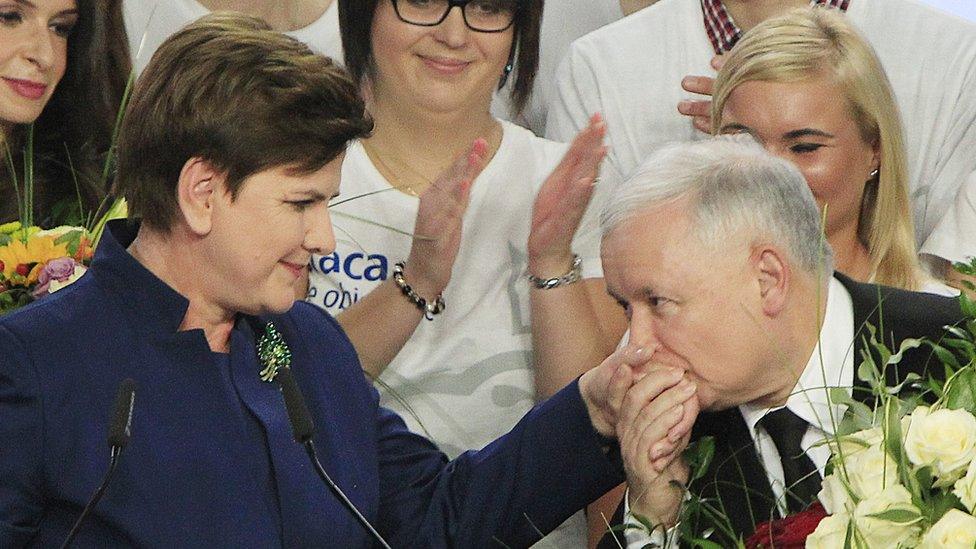
- Published26 October 2015
